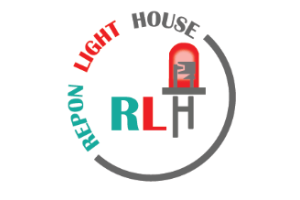Slot Machine Myths Debunked
Slot machines are one of the most popular forms of entertainment in casinos around the world. With their flashing lights, enticing sounds, and promise of big wins, it’s no wonder that many people can’t resist the allure of these machines. However, there are many myths surrounding slot machines that need to be debunked.
Myth #1: Slot Machines Are Rigged
One of the most common complaints about slot machines is that they are rigged against players. This myth has been perpetuated by numerous online forums and review sites, but the truth is that slot machines are designed to pay out a certain percentage of money inserted https://3powersofzeus.com/ into them over time. In other words, casinos make their profit from the house edge, not from tampering with the machines themselves.
The idea that slot machines can be rigged is simply not supported by evidence. Independent testing organizations, such as Technical Systems Testing (TST) and Gaming Laboratories International (GLI), regularly test slot machines to ensure they are functioning fairly and paying out according to their intended payout percentages. These tests involve simulating thousands of spins on the machine and calculating the theoretical return to player (RTP).
In fact, most modern slot machines are designed with built-in random number generators (RNGs) that ensure each spin is completely independent from the previous one. This means that the outcome of a spin cannot be predicted or influenced by any external factor, including the casino itself.
Myth #2: Hot Slots Are Real
The idea that certain slot machines are "hot" and more likely to pay out than others is a myth that has been around for decades. Many players swear by their favorite slots as being "due" for a big win, but the truth is that each spin of a slot machine is an independent event.
In reality, the probability of winning on any given spin is determined by the RNG and is not influenced by past results or trends. This means that if a slot machine has paid out recently, it’s just as likely to pay out again in the near future as it is to go on a cold streak.
While it may be tempting to chase hot slots, this approach can often lead to players losing more money than they win. In fact, studies have shown that chasing "hot" machines can result in losses of up to 30% or more over time. This is because players tend to play more aggressively and with a longer session length when chasing wins, which can increase their risk exposure.
Myth #3: High-Low Variance Is the Key to Winning
Many players believe that playing slots with high volatility (also known as "high-low variance") is the key to winning big. The idea behind this myth is that high-volatility slots offer more frequent but smaller wins, while low-volatility slots offer less frequent but larger wins.
However, in reality, the payout frequency and size are not directly related to the volatility of a slot machine. Instead, the payouts on a slot machine are determined by its RTP, which takes into account both the number of times a player is paid out (frequency) and the average amount they receive (size).
In fact, research has shown that players who chase high-volatility slots tend to lose more money over time than those who play low-volatility slots. This is because high-volatility slots often require longer session lengths and higher bet sizes in order to achieve a payout.
Myth #4: Progressive Jackpots Are Rigged
Progressive jackpots are a popular feature of many modern slot machines, offering players the chance to win life-changing sums of money. However, some players have raised concerns about whether progressive slots are fair or if they favor the house.
The truth is that progressive jackpots work by pooling funds from multiple machines and feeding them into a separate pot. This means that every time a player places a bet on a machine with a progressive jackpot, a small portion of their wager goes towards growing the prize fund.
In fact, many independent testing organizations have certified progressive slots as fair and compliant with regulatory standards. These tests involve verifying that the payout percentages are correctly calculated and that the RNG is functioning fairly.
